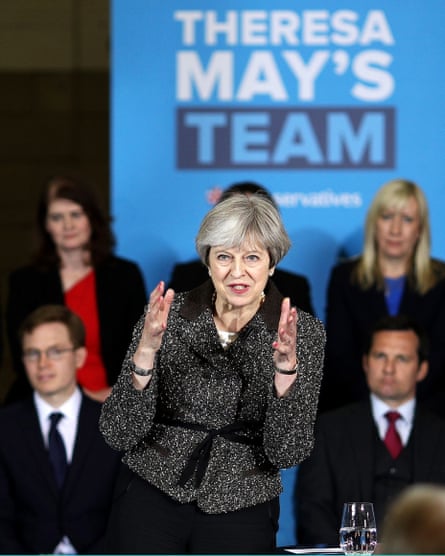Theresa May is fond of making promises she knows she won’t keep. She promised there would be no early election and now we’re in the midst of one; she says a large majority in parliament will increase her Brexit negotiating power, a nonsensical claim that has no grounding in reality; and on Monday she again pledged to cut net migration to below 100,000 – a pledge she’s failed to live up to for seven years now.
Writing off the pledge doesn’t, however, grapple with the reasons for this failure. Look at what May said a little over a month ago. Before the country was gripped by election fever she admitted that she couldn’t guarantee immigration would be significantly lower after Brexit. After decades of anti-migrant rhetoric, this was one of many moments in history when a politician’s duplicity on immigration was beautifully transparent. May is unlikely to considerably reduce the number of people coming into this country. Why? Because they keep the UK economy going.

This truth is perhaps nowhere more apparent than if we look at Tim Martin, the founder of the JD Wetherspoon pub chain. He is what one might call a fanatical Brexiteer. Having furiously demanded that the UK leave the EU – going so far as to put this message on coasters in his many establishments across the UK – he’s begun back-pedalling on one of the key leave promises. Now he’s saying the country can’t afford to put a brake on immigration. The short explanation for this: he needs people from all over the world to staff his business.
There’s a similar picture in sectors all over the UK. Last November May claimed that “health tourism” was a significant problem for the NHS, using this argument to implement policies that would turn NHS workers into border staff and force pregnant women to show their passports to access treatment. There is no evidence to support claims that people from abroad undermine the system. If anything, the opposite is true: foreign nationals who work for the NHS are choosing to leave a country that has repeatedly told them they are not welcome. This has created “necessary panic”, and a cross-party group of MPs has asked May to guarantee EU nationals will still be able to stay post-Brexit.
None of this is to say that migration should merely be understood through the prism of economics. People who come to the UK should not simply be “allowed” in this country because they contribute to the economy, and their access to healthcare should not be contingent on proving their economic worth. They are human beings with ambitions, histories and personal relationships. Migration is part of life. But it must also be seen in the context of an unfair global economic system that leaves a billion people living on less than a $1.25 a day – and from which the UK benefits as people move around the globe in search of a better life.
One reason migration has caused resentment is that politicians of all persuasions have told the public that migration is to blame for low wages – a claim May repeated on Monday. Yet all the evidence suggests this is not true, to distract people from the real causes of declining living conditions: government policy, exploitative big business, and a financial elite only interested in looking after itself. May is playing divide and rule: the only way to truly “take back control” is for people, wherever they were born, to come together to demand better rights. Division, not migrants, is the problem. And the left is the only political vehicle to provide that solution.
When the government fails to deliver on an immigration pledge, it’s likely to inflame anger, which can then spill over into attacks on asylum seekers.
But anger should be redirected, in a non-violent form, at its rightful target: the people who benefit from and maintain this exploitative system. Migration has not caused low wages or the crisis in our public services. Many politicians callously peddling anti-immigrant feeling know this. It’s time the public did too.

